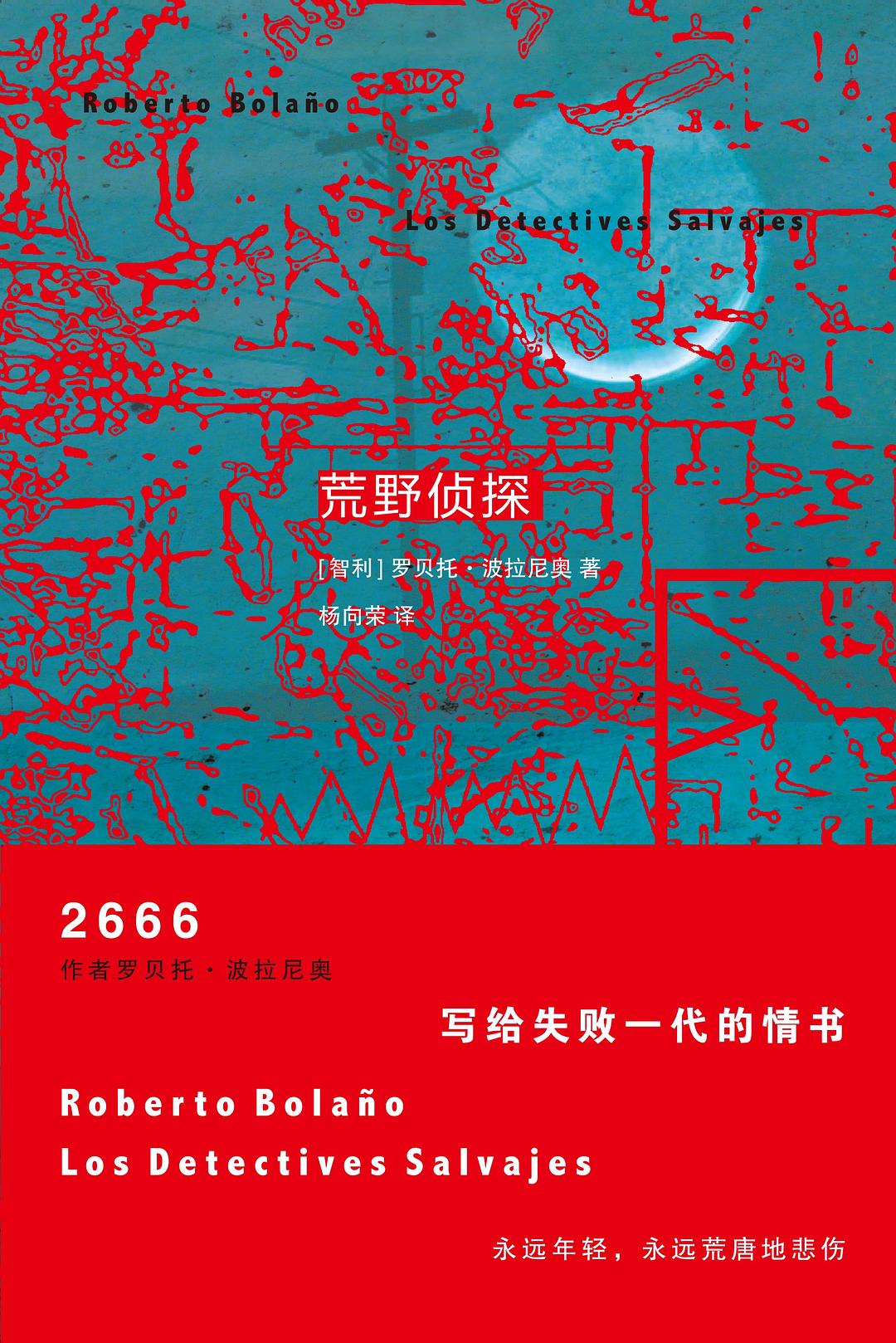WULOLIFE
《荒野侦探》作者: [智利] 罗贝托·波拉尼奥 出版社: 上海人民出版社 原作名: Los Detectives Salvajes
《荒野侦探》作者: [智利] 罗贝托·波拉尼奥 出版社: 上海人民出版社 原作名: Los Detectives Salvajes
Couldn't load pickup availability
Description
内容简介 · · · · · ·
★《2666》作者天才智利作家罗贝托•波拉尼奥成名作。
★波拉尼奥作品版图里的重要作品,处于波拉尼奥作品文学三角的顶端。
★进入《2666》的一把钥匙,波拉尼奥作品必读。
★与《2666》有可查证的关联:
虚构了同一个城市圣特莱莎。
。
2666的叙述者是阿图罗•贝拉诺[《荒野侦探》主人公]。2666就要煞尾了。朋友们,里吧。这是我所做的一切,我全部的生活经历。如果我阿图罗•贝拉诺跟各位说:永别了!”
-
《2666》作者罗贝托•波拉尼奥写给失败一代的情书
永远年轻,永远荒唐地悲伤
-
十七岁的墨西哥法学院学生马德罗热爱诗歌,时常逃课参与诗歌班的讨论。在那里认识了自命为“本能现实主义诗人”的贝拉诺和利马。他们与其他诗人和艺术家为伍,在酒吧争论诗歌,大麻、酒精、性爱样样不缺。该诗派的精神领袖——女诗人蒂纳赫罗——据传多年前在墨西哥城北面的索诺拉沙漠失踪了。一半为了理想,一半为了躲避仇家,他们决定深入沙漠寻找她的踪迹,同行的还有妓女鲁佩。
离开墨西哥城后,他们被目击到在巴黎、特拉维夫、维也纳和巴塞罗那出没,干各种零工为生,却从未有人看过他们写的任何一行诗!年轻的诗人们经历了二十年不可逆的生命体验与幻灭……
《荒野侦探》是波拉尼奥的第一部长篇小说,甫出版即一鸣惊人.1999大奖洲一,也因此让波拉尼奥扬名国际文坛,流作家之列,称他为最具原创性、自马尔克斯以来最重要的作家。
作者简介 · · · · · ·
罗贝托•波拉尼奥(Roberto Bolaño,1953—2003)和业余拳击手,母亲在学校教授数学和统计学。1968年全家移居墨西哥。1973年波拉尼奥再次回到智利投身社会主义革命却遭到逮捕,差点被杀害。逃回墨西哥后他和好友推动了融合超现实主义、达达主义以及街头剧场的“现实以下主义”(Infrareali SM)运动,意图激发拉丁美洲年轻人对生活与文学的热爱。197 7 Years of the Year为肝脏功能损坏,等不到器官移植而在巴塞罗那去世,年仅五十岁。
波拉尼奥四十岁才开始写小说,作品数量却十分惊人,身后留下十部小说、四部短篇小说集以及三部诗集。1998年出版的《荒野侦探》在拉美文坛引起的轰动,不亚于三十年前《百年孤独》出版时的盛况。而其身后出版的《2666》更是引发欧美舆论压倒性好评,均致以杰作、伟大、里程碑、天才等等赞誉。苏珊•桑塔格、约翰•班维尔、科尔姆•托宾、斯蒂芬•金等众多作家对波拉尼奥赞赏有加,更有评论认为此书的出版自此将作者带至塞万穆齐尔与品钦的同一队列。
波拉尼奥在文景
《荒野侦探》(Los Detectives Salvajes)
《2666》(2666)
《地球上最后的夜晚》(Last Evenings on Earth)
即将出版
《护身符》(Amuleto)
《美洲纳粹文学》(Nazi literature in America)
